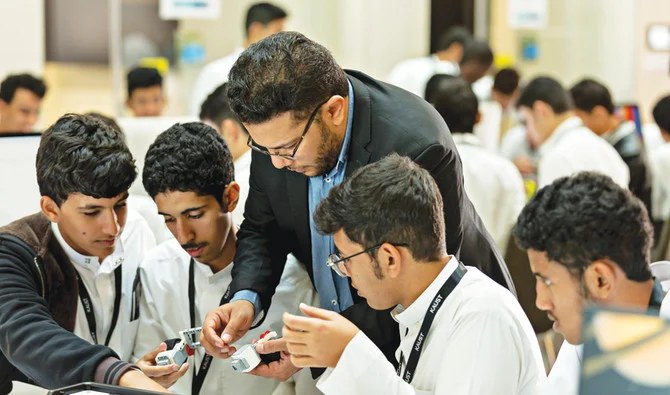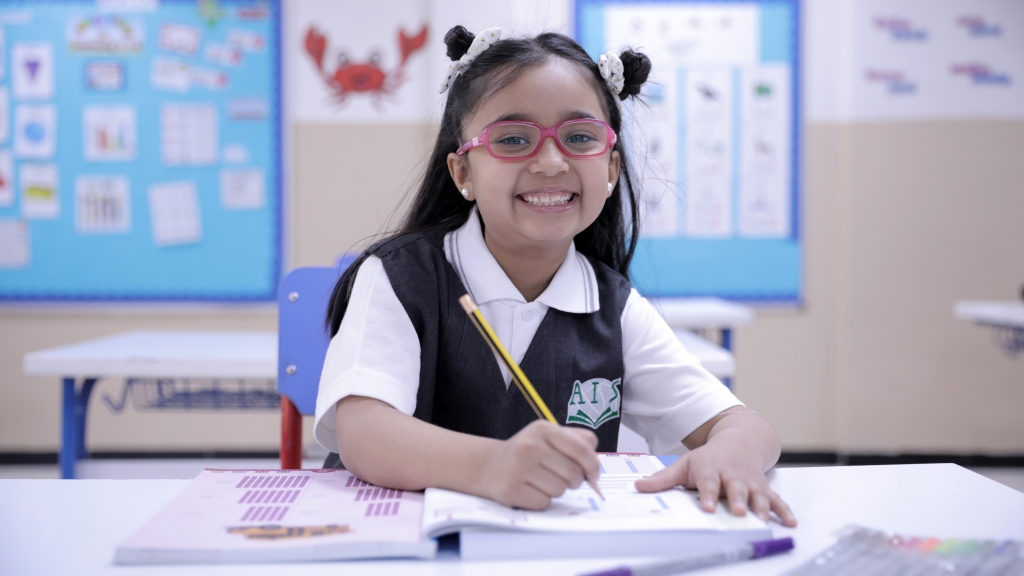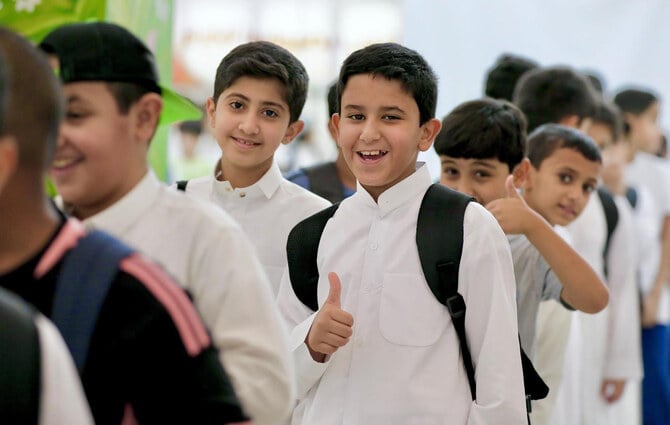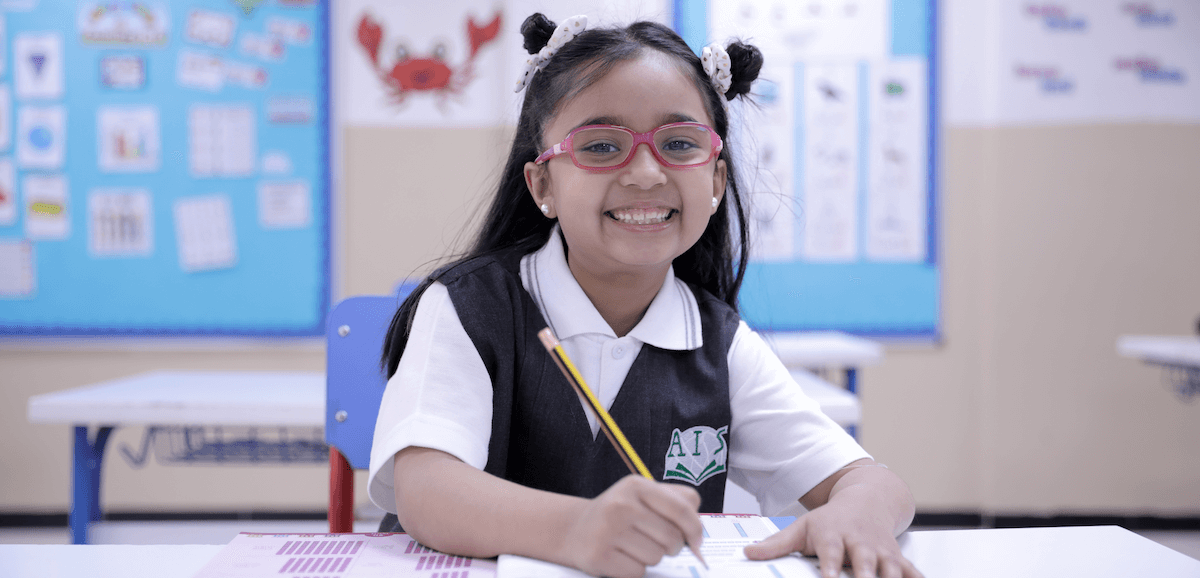Get Smart: Education in Saudi
With the speed of progress around Saudi Arabia, it may be easy to get caught up in the excitement of year-round events, giga-projects, and the fast-paced business scene. But one of the most important components of this forward-looking vision is education. An estimated 63% of Saudis are under the age of 301 and in recent years education at all levels has undergone a transformation in the Kingdom of Knowledge, with curricula that prep young minds for the careers of the future, programs that help adults upskill and thrive, and awareness initiatives that ensure schools are safe. So next time you’re in town for the Red Sea Film Festival (or Riyadh Seasons!), and wondering if you can lay down some roots in Saudi Arabia – read on!
Empowering students to be confident, aspirational, and secure
Saudi Arabia allocates 16% of its national budget to education, around three times more than the US, UK, France and Germany. Meanwhile, the Ministry of Education has been revamping the Saudi curriculum; changes include a focus on digital literacy, critical thinking, greater English proficiency, as well as self-defense and personal safety. Safe Schools is an initiative that trains staff and students in emergency procedures, disaster preparation, and basic first aid, preparing students with key life skills to make them resilient and productive members of society.
Since 2022, schools have also operated on a trimester system that better distributes subjects and holidays, encouraging students to engage in extra-curricular activities. These changes instill a lifelong-learning mindset that fosters independence and self-improvement, rather than rote learning, to better equip students for higher education and successful careers – at home or abroad. Alongside the reinforced English curriculum, students can now also start learning Mandarin as early as primary school, as part of a cultural exchange program with China. Now more than ever, students in Saudi schools can get a world-class education they can take with them anywhere.
You’ve got options
With an increasingly diverse – and upwardly mobile – population, private and international schools play a key role in Saudi education. Long-established institutions like the American and British Schools teach students from more than 50 countries. But there is also the Deutsche International Schule Riad, which is more than half a century old, and l’École Française Internationale de Djeddah, which was founded in 1966 and today teaches more than 1,000 students from 38 countries!
These schools are internationally accredited, allowing students to obtain AP or IB certification, or sit the SAT, GCSEs or A Levels. This means kids can pick their education back up in their home countries without missing a beat! You’ll also find that many larger employers offer tuition support as part of your employment package, easing the move for kids and parents alike.
Local identity with a global outlook
Higher education used to be synonymous with studying abroad for ambitious young Saudis, with the US, UK, and Australia the top destinations. But world-class higher education is more accessible (and affordable) than ever in the Kingdom. Top public institutions like King Saud University (KSU), King Fahd University of Petroleum and Minerals (KFUPM) and King Abdullah University of Science and Technology (KAUST) have partnerships with leading institutions across the globe. Notable partnerships include: the University of California, Berkeley, MIT and Stanford in the US; the University of Oxford, University of Cambridge and Imperial College London in the UK; the Technical University of Munich, the University of Stuttgart and the Max Planck Society in Germany; and Panthéon-Sorbonne in France. With the world at their doorstep, Saudis are increasingly choosing to study closer to home.
But perhaps the best way to gauge Saudi universities is by their overachievers! Among the alumni are trailblazers like Aseel Al Hamad, who majored in Interior Design Engineering with a minor in Computer Science at Prince Sultan University, then went on to found her very own design firm. Not to be outdone, though, she also pursued her passion for motorsports, becoming the first female Saudi Formula 1 driver, Saudi Arabia Representative of Women in Motorsport at the Fédération Internationale de l’Automobile and a board member of the Saudi Automobile and Motorcycle Federation.
Stories like these demonstrate that, more than anything else, education is an essential part of shaping informed citizens with a firm sense of identity. Whether academic or vocational, this process of self-improvement puts you in the driver’s seat, so that you’re not only picking the destination, but how to get there, too. Career opportunities, creative pursuits, or even just relating to people with different experiences, are among the most rewarding aspects of pursuing an education and contribute to a more inclusive – also, far more interesting! – society.



